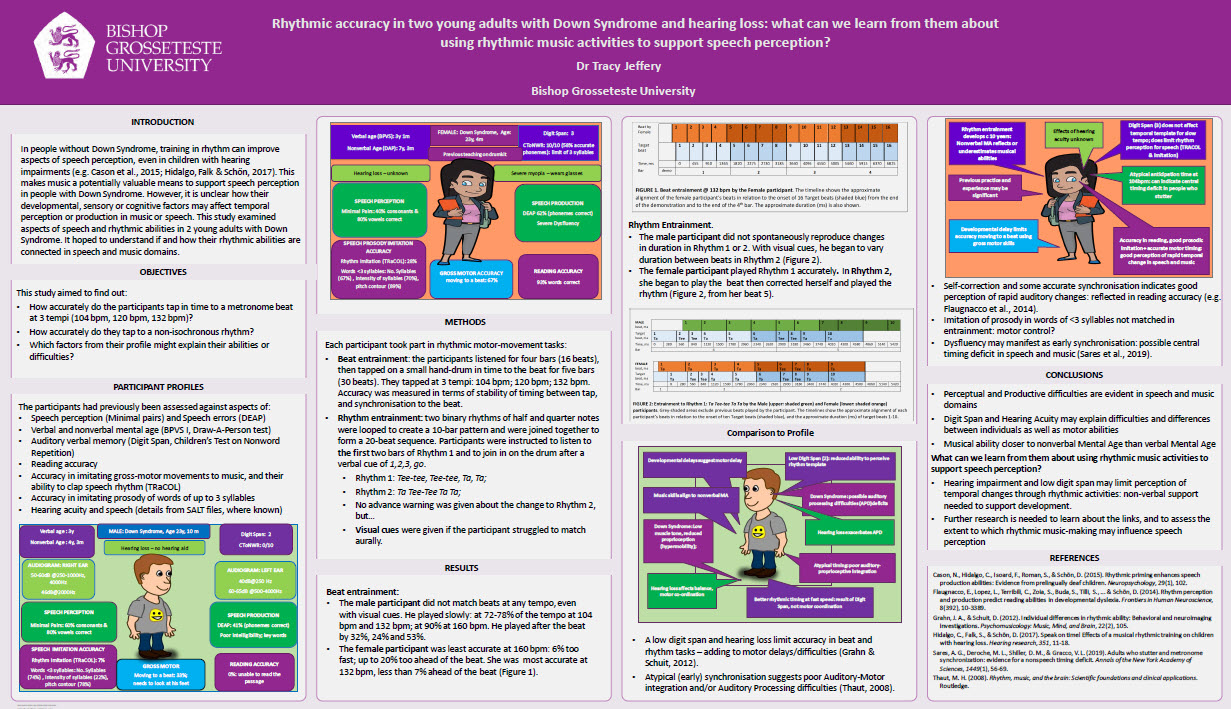Rhythmic accuracy in two young adults with Down Syndrome and hearing loss: what can we learn from them about using rhythmic music activities to support speech perception?
Rhythmic accuracy in two young adults with Down Syndrome and hearing loss: what can we learn from them about using rhythmic music activities to support speech perception?
Contact: tracy.jeffery@bishopg.ac.uk
Abstract
Although music can be important in the lives of people with Down Syndrome, little is known about how developmental and cognitive differences in people with Down Syndrome may affect temporal perception or production in music or speech. Additionally, participants with Down Syndrome and hearing impairment are often excluded from studies, further limiting our understanding. This poster summarizes a case study of one male (24 years) and one female (24 years) with Down Syndrome and hearing impairments who took part in a series of rhythmic motor-movement tasks. Measurements were made of their temporal accuracy and stability when dancing to music, when tapping to a beat at three tempi, and when tapping to two rhythmic patterns. Their accuracy in timing was examined against their cognitive, perceptual and speech profiles. Results revealed contrasting abilities between each participant in speech accuracy and rhythmic speech production and in motor-rhythmic perception and production. Comparison to the participants' profiles indicate that a lower digit span and greater hearing loss are likely to have limited accuracy in the male participant; whilst the female had previous experience in music and relatively better hearing and digit span, all of which may have supported accuracy in her speech perception. A marked improvement in the male when auditory tasks were augmented with visual-spatial information suggests that rhythmic production may be supported effectively even when hearing acuity is low. The results suggest that rhythmic accuracy in motor-timing tasks may be linked to perception of speech sounds in the participants. Further research is needed to learn the extent to which rhythmic music-making may influence speech perception and to what extent music-making can enhance speech perception.
Poster:
Download the PDF here


